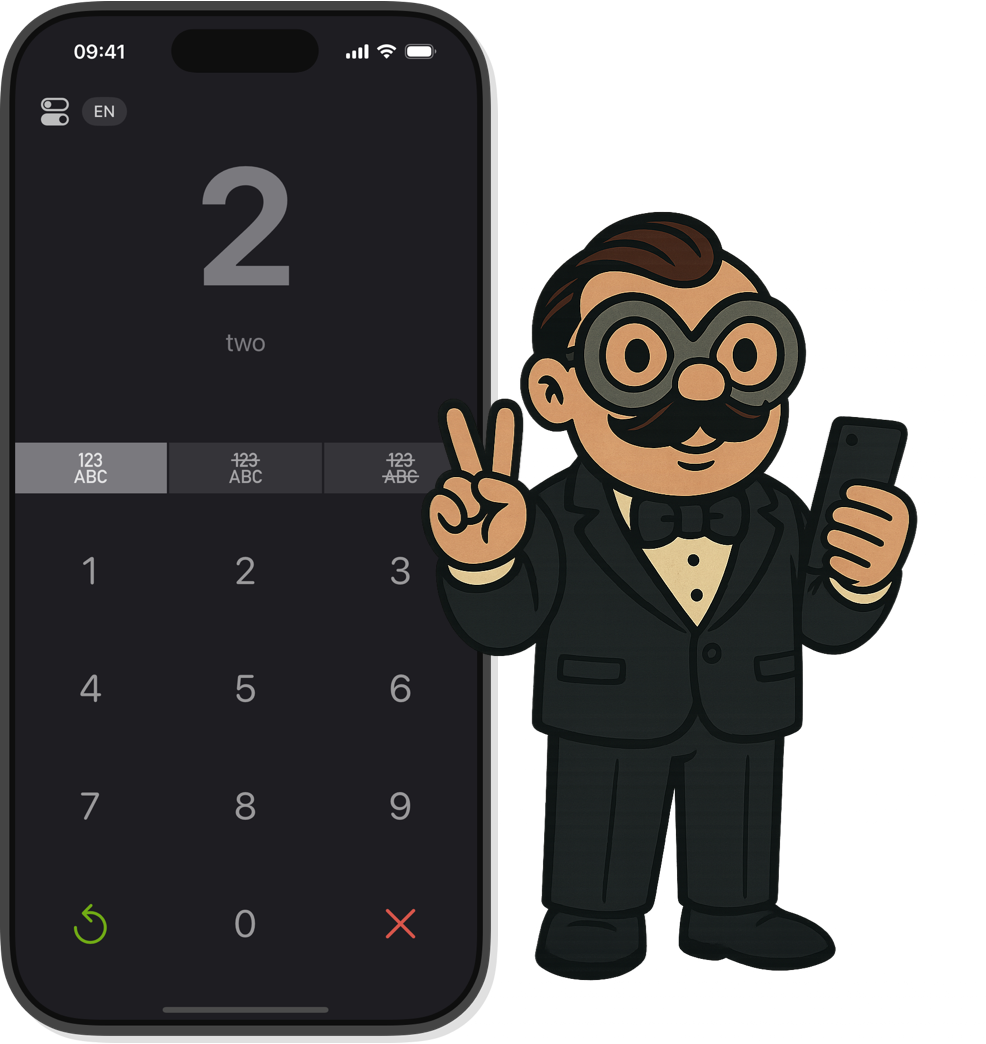Turkish Numbers: The World's Most Logical Number System?
Forget irregular numbers or complex grammatical rules. The Turkish number system is famous for its impressive logic and consistency. Once you know the numbers from 1 to 10 and the tens, you can form almost any number. This guide shows you how simple the system is and walks you through all numbers from 1 to 100.


How Turkish Numbers Are Structured
The Turkish number system is extremely logical and consistently structured. Once you know the numbers from 1-10 and the tens, you've mastered almost the entire system.
- 1-10
-
Basic numbers: bir, iki, üç, dört, beş, altı, yedi, sekiz, dokuz, on
Regular basic numbers that must be memorized. They are the foundation for all other numbers.
- 11-19
-
Formation with "on-": on bir, on iki, on üç...
Simply on (ten) followed by the basic number. on bir (11), on iki (12) etc. Very regular.
- 20-99
-
Tens + basic number: yirmi bir, otuz iki, kırk üç
From 20 onwards, numbers are simply combined: tens digit + basic number. No connecting words like "and". Examples: yirmi bir (21), kırk beş (45).
- 100+
-
Hundred: yüz (100), yüz bir (101)
Yüz stands for 100, iki yüz for 200 etc. Numbers are simply appended: yüz bir (101).
Turkish Numbers from 1 to 100
All Turkish numbers from 1 to 100 at a glance. Perfect for systematic learning and quick reference.
Test Your Turkish Number Skills
Can you match these numbers correctly? How confident are you with Turkish numbers from 1-100?
Pro tip: App for targeted number training. Did you know there's an app dedicated exclusively to foreign language numbers? With the Numfred app, you can specifically learn Turkish numbers.
Hundreds, Thousands and Large Numbers
Here are the most important numbers and their formation:
- 100
-
yüz
Standing alone: yüz. In combination: yüz bir, yüz iki…
- 200-900
-
iki yüz, üç yüz, dört yüz, beş yüz, altı yüz, yedi yüz, sekiz yüz, dokuz yüz
Simply place the basic number before yüz.
- 1.000
-
bin
Thousand
- 1.000.000
-
bir milyon
One million
- 1.000.000.000
-
bir milyar
One billion
- 1.000.000.000.000
-
bir trilyon
One trillion
Common Pitfalls When Learning Numbers
While the Turkish system is logical, there are a few things that can be unusual for English speakers:
-
No plural after numbers:
After a number, the noun always stays singular. You say beş elma (five apple), not beş elmalar. -
Similar-sounding tens:
altmış (60) and yetmiş (70) can be easily confused. Careful listening is important here. -
The number 1:
bir means "one" but is also used as an indefinite article ("a/an"). bir ev can mean "a house" or "one house". -
Numbers are written separately:
Unlike compound words in English, numbers are written separately, e.g. yirmi beş (25), not yirmibeş.
Understanding and Using Numbers in Daily Life
In spoken Turkish, numbers are often pronounced quickly – especially when talking about:
-
Time:
Saat bir = It's one o'clock
Saat iki = It's two o'clock
ikiyi çeyrek geçiyor = Quarter past two (2:15)
iki buçuk = Half past two (2:30)
üçe çeyrek var = Quarter to three (2:45)
beşe on var = Ten to five (4:50)
sekizi yirmi geçiyor = Twenty past eight (8:20) -
Money amounts:
on beş lira = 15 TL
yirmi beş lira elli kuruş = 25.50 TL
para = money (general)
Bu kaç para? = How much does this cost? -
Years:
1453 → bin dört yüz elli üç
1923 → bin dokuz yüz yirmi üç
2024 → iki bin yirmi dört -
Basic arithmetic:
5 + 3 = 8 → beş artı üç eşittir sekiz
10 - 4 = 6 → on eksi dört eşittir altı
3 × 5 = 15 → üç çarpı beş eşittir on beş
20 ÷ 4 = 5 → yirmi bölü dört eşittir beş -
Fractions and decimals:
½ → yarım, buçuk
¼ → çeyrek
0.5 → sıfır virgül beş
3.14 → üç virgül on dört
Unique Characteristics of Turkish Numbers
Turkish has certain linguistic conventions and unique characteristics when dealing with numbers – here's an overview:
-
No plural after numbers:
First things first: The noun after a number always stays singular. This means: üç araba (three car), not üç arabalar. This simplifies many things! -
Number notation with period and comma:
In Turkish, thousands are separated with periods, decimals with commas (opposite to US English):
1.000,50 = bin virgül elli -
Special words for fractions:
For "half" there are two words: yarım (half an apple) and buçuk (two and a half). For "quarter" çeyrek is used.
Explore other languages:


